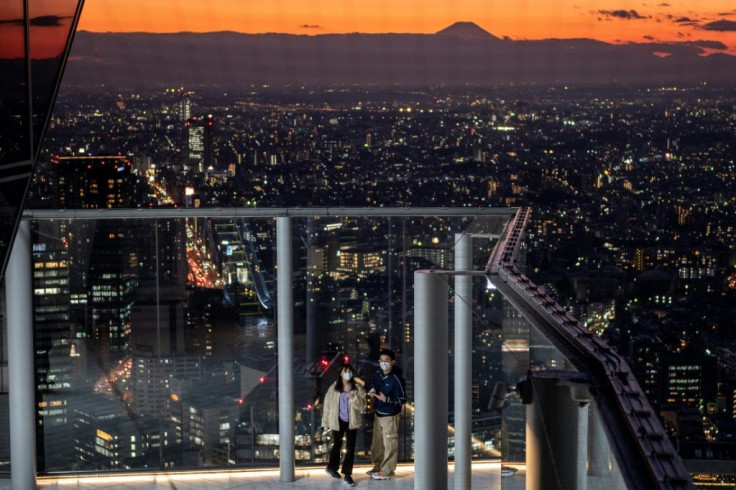Japan Expands Virus Emergency, Tightens Border Restrictions
Japan expanded a coronavirus state of emergency on Wednesday to seven more regions -- including Osaka and Kyoto -- and also tightened border restrictions as infections surge nationwide.
The expansion means that from Thursday, 11 of the country's 47 prefectures will be under the state of emergency -- accounting for about 60 percent of its GDP.
While the country's outbreak remains comparatively small, with around 4,100 deaths overall, there has been a sharp spike in cases this winter and medics say hospitals are under heavy strain in the worst-affected areas.
"We continue to see a serious situation," Prime Minister Yoshihide Suga said, adding that the measures were "indispensable".
"We must overcome this challenge that we face."
The month-long state of emergency was implemented in the greater Tokyo area last week.
It asks restaurants and bars to close by 8 pm, with residents urged to avoid unnecessary outings and working from home strongly encouraged.

Although -- unlike most places in the world -- the law does not currently allow authorities to enforce these requests, the government is planning legislation to fine businesses that do not comply.
The areas affected range from central Aichi, an industrial and commercial hub, to Fukuoka in the southwest, and Osaka, which has reported record new cases in recent days along with neighbouring Kyoto and Hyogo prefectures.
The emergency declaration will last until February 7 for all regions covered.
Suga also announced Wednesday that the government would further tighten entry restrictions, which already bar the entry of almost all foreign visitors.
It will now suspend a programme allowing business visits from 11 countries and regions, he said, all but ending the entry of foreigners who are not existing residents.
Late Wednesday, the government also said it would tighten quarantine rules, threatening to name and shame Japanese citizens who violate the measure, and warning it could revoke the residency of foreign nationals who do the same and deport them.
The measures come just over six months before the virus-postponed Tokyo Olympics are due to open.
Suga has insisted he is committed to holding the Games this summer, despite polls showing widespread public opposition.





















